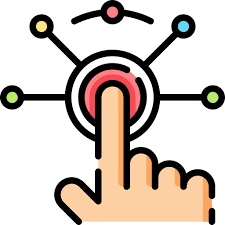Digital marketing is a broad field that encompasses many different types of tools and strategies. Here are some commonly used digital marketing tools:
Social media tools
There are many different tools that can be used to manage and optimize social media marketing campaigns. Here are a few popular social media tools:
There are many different tools that can be used to manage and optimize social media marketing campaigns. Here are a few popular social media tools:
1. Hootsuite: Hootsuite is a social media management platform that allows businesses to manage multiple social media accounts from one place. It offers features such as content scheduling, social media listening, and analytics.
2. Buffer: Buffer is a social media management tool that allows businesses to schedule social media posts and track engagement. It also offers features such as content creation and curation, team collaboration, and analytics.
3. Canva: Canva is a graphic design platform that allows businesses to create professional-looking social media graphics, including posts, ads, and stories.
4. Sprout Social: Sprout Social is a social media management platform that offers features such as scheduling, content curation, social media listening, and analytics. It also has a built-in CRM system for managing customer interactions.
5. Buzzsumo: Buzzsumo is a content marketing tool that allows businesses to discover trending content on social media, track mentions of their brand, and analyze their competitors’ social media strategies.
6. Mention: Mention is a social media monitoring tool that allows businesses to track mentions of their brand, competitors, and industry keywords. It offers features such as sentiment analysis, influencer identification, and real-time alerts.
These tools can help businesses to streamline their social media management, save time, and optimize their social media campaigns for maximum impact.
SEO Tools
Search engine optimization (SEO) tools are software or web-based applications that help businesses optimize their website for search engines, improve their search rankings, and drive more organic traffic to their site. Here are some of the benefits of using SEO tools:
1. Keyword research: SEO tools help businesses to identify the best keywords and phrases to target in their content, allowing them to improve their search rankings and attract more qualified traffic to their site.
Keyword research SEO tools are software or web-based applications that help businesses to find the best keywords to target in their SEO strategy. These are many Free SEO Audit Tools you can try. These tools can help businesses to identify high-traffic, low-competition keywords that are relevant to their industry, products, or services. Here are some popular keyword research SEO tools:
• Google Keyword Planner: This free tool from Google allows businesses to research keywords and estimate their search volume and competition. It also provides suggestions for related keywords and their average cost-per-click (CPC) for advertising purposes.
• Ahrefs Keyword Explorer: This paid tool provides businesses with detailed data on search volume, keyword difficulty, and clicks per search. It also offers keyword suggestions and can analyze competitor keyword strategies.
• SEMrush Keyword Magic Tool: This paid tool offers businesses access to a comprehensive database of keywords and provides data on search volume, competition, and trend data. It also offers related keyword suggestions and can group keywords by topic.
• Moz Keyword Explorer: This paid tool offers businesses access to search volume data, keyword difficulty scores, and suggestions for related keywords. It also provides a “Priority Score” that helps businesses to prioritize their keyword targeting.
• KWFinder: This paid tool provides businesses with data on search volume, keyword difficulty, and cost-per-click (CPC) data. It also offers related keyword suggestions and can analyze competitor keyword strategies.
2. On-page optimization: SEO tools can analyze a website’s content and structure to identify areas for improvement, such as optimizing page titles and meta descriptions, improving site speed and mobile-friendliness, and fixing broken links. Screaming Frog SEO Spider, SEOCrawle, Copyscape, screaming Frog,MOZ on page Grader Some on page SEO tool.
3. Link building: SEO tools can help businesses to identify high-quality backlink opportunities and track their link-building progress, which can improve their search rankings and drive more traffic to their site.
4. Competitive analysis: SEO tools can help businesses to analyze their competitors’ search rankings, backlink profiles, and content strategies, allowing them to identify opportunities for improvement and stay ahead of the competition.
5. Reporting and analytics: SEO tools can provide businesses with detailed analytics and reporting on their search rankings, traffic, and conversions, allowing them to track their progress and optimize their strategy over time.
Some popular SEO tools include Google Analytics, Ahrefs, SEMrush, Moz, and Yoast SEO. These tools can help businesses to improve their search rankings, drive more traffic to their site, and ultimately, grow their business.
Analytics tools
Analytics tool are software or web-based applications that help businesses to track and analyze data related to their website, social media, marketing campaigns, and other digital channels. Here are some of the benefits of using analytics tools:
1. Tracking website performance: Analytics tools can track website metrics such as traffic, bounce rate, time on site, and conversion rate, allowing businesses to optimize their website for better performance.
2. Understanding customer behavior: Analytics tools can track user behavior on a website, such as what pages they visit, how long they stay on the site, and what actions they take, allowing businesses to better understand their customers’ needs and preferences.
3. Monitoring marketing campaigns: Analytics tools can track the success of marketing campaigns across multiple channels, including social media, email, and PPC advertising, allowing businesses to optimize their campaigns for better ROI.
4. Identifying opportunities for improvement: Analytics tools can help businesses to identify areas of their website or marketing campaigns that are underperforming, allowing them to make data-driven decisions to improve their strategy.
5. Reporting and visualization: Analytics tools can provide businesses with visual reports and dashboards that make it easy to understand complex data and track progress over time.
Some popular analytics tools include Google Analytics, Adobe Analytics, Mixpanel, and Piwik PRO. These tools can help businesses to make informed decisions, improve their digital marketing strategy, and ultimately, grow their business.

